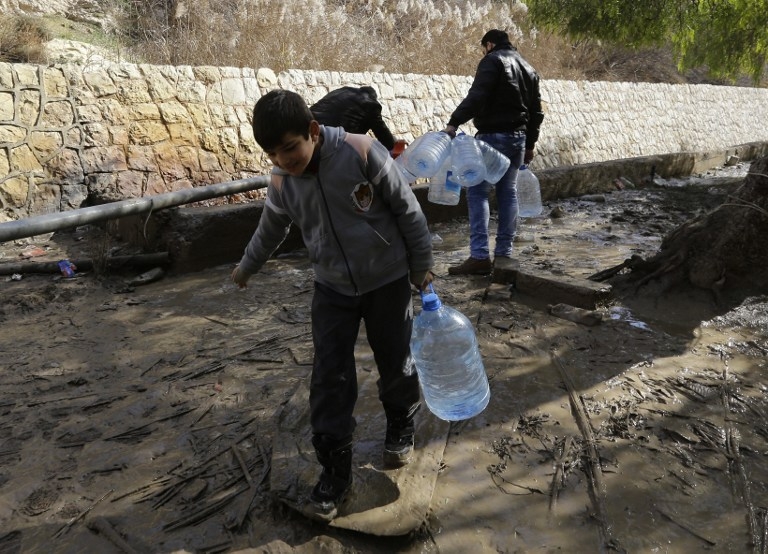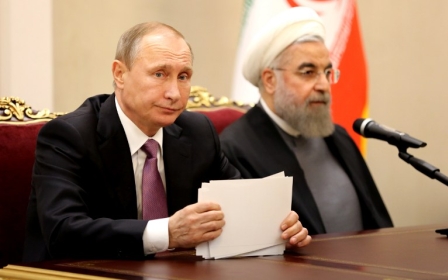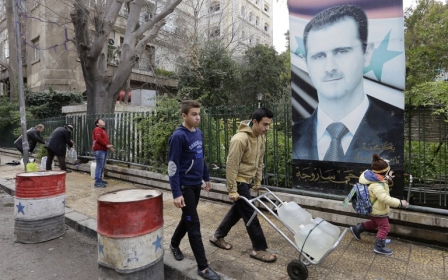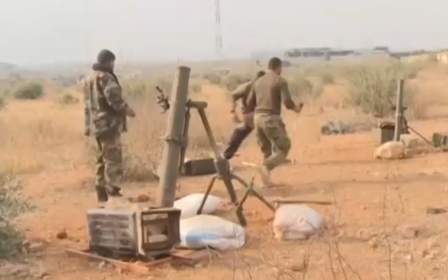Fresh Syria raids as Moscow sets date for peace talks

Syrian warplanes launched strikes in several parts of the country on Wednesday despite a fragile truce, a monitor said, as Russia confirmed a 23 January date for new peace talks.
The negotiations, to be held in the Kazakh capital Astana, are intended to build on a ceasefire in effect since late December, brokered by government ally Russia and rebel backer Turkey.
The truce has brought quiet to large parts of the country, but has been threatened by continuing violence, particularly near the capital Damascus.
Overnight and into Wednesday, government warplanes hit opposition areas in the provinces of Aleppo and Idlib, as well as the Eastern Ghouta region near the capital, the Syrian Observatory for Human Rights said.
The overnight strikes in Idlib, in the northwest of the country, targeted positions belonging to former Al-Qaeda affiliate Fateh al-Sham Front, which is not party to the ceasefire, the Observatory said.
The strikes on the town of Taftanaz killed three rebels from a group allied to the militants, the Britain-based monitor said.
An AFP correspondent in the town saw a building that had totally collapsed in the attack. The White Helmets, a rebel-aligned rescue service, spent hours clearing debris with picks and hammers.
On Wednesday morning, government air strikes also hit Eastern Ghouta, the Observatory said.
The rebel-held region has been hit by artillery fire during the truce, but the air strikes, which killed a woman and wounded nine other people, were the first since the start of the ceasefire, the monitor said.
The monitor also reported clashes and air strikes in the Wadi Barada region, which has seen some of the most serious violence since the truce went into effect on 30 December.
January 23 peace talks
The rebel-held region some 15 kilometres northwest of Damascus is the main water source for the capital, but supply has been cut since 22 December.
Some 5.5 million people in Damascus and its suburbs are suffering water shortages as a result, the UN says.
The government accuses rebels, among them Fateh al-Sham, of deliberately cutting the supply.
The rebels say regime strikes damaged pumping facilities and deny that Fateh al-Sham, previously known as Al-Nusra Front, has forces in the area.
Fateh al-Sham and its rival the Islamic State group are excluded from the truce, and President Bashar al-Assad's government has said it plans to "liberate" Wadi Barada despite the deal.
"The role of the Syrian army is to liberate that area in order to prevent those terrorists from using that water in order to suffocate the capital," Assad told French media on Monday.
On Tuesday, the government sent reinforcements to Wadi Barada, the Observatory said, without providing further details.
On Wednesday, however, state television said a deal had been reached with rebels to allow repair crews to enter the region "in the coming hours".
The delicate ceasefire has held in other parts of the country, though rebels and Turkey have warned the fighting in Wadi Barada could threaten the planned Astana talks.
A Russian foreign ministry source said on Wednesday that the talks were scheduled for 23 January, a date previously floated by Turkish officials.
"At this time there is no indication that the meeting will be postponed. The date of January 23 is set," the source said, adding that work was underway to compile a list of participants.
Damascus ally Iran is also helping to organise the talks, which are the latest bid to find a political solution to the nearly six-year-old civil war that has killed more than 310,000 people.
Middle East Eye propose une couverture et une analyse indépendantes et incomparables du Moyen-Orient, de l’Afrique du Nord et d’autres régions du monde. Pour en savoir plus sur la reprise de ce contenu et les frais qui s’appliquent, veuillez remplir ce formulaire [en anglais]. Pour en savoir plus sur MEE, cliquez ici [en anglais].




